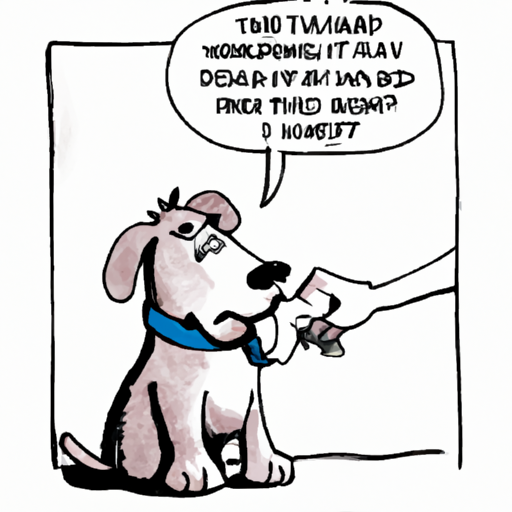If you’ve ever had a pet dog, there’s a high chance you’ve experienced this. You get a minor scrape or cut, and your furry friend, seemingly concerned, comes over and starts to lick the wound. While this act may seem endearing, even touching, it’s essential to understand what’s behind this behavior, why it happens, and if it’s beneficial or potentially harmful.
Table of Contents
- Understanding a Dog’s Natural Instincts
- The Science Behind Saliva
- Potential Risks and Precautions
- Encouraging Safe Dog Behaviors
- Frequently Asked Questions
Key Takeaways
- Dogs’ instinct to lick wounds comes from their wild ancestors.
- Canine saliva has healing properties but also carries potential risks.
- It’s crucial to discourage dogs from licking human wounds to prevent infection.
Understanding a Dog’s Natural Instincts
Dogs’ behavior of licking wounds isn’t just restricted to their human companions. They do it to themselves and to other dogs as well. This behavior is ingrained in their DNA, passed down from their wild ancestors. The wolves.
In the wild, wolves and other canine species lick their own wounds and those of their pack members. This instinctive behavior serves several purposes. One of the primary reasons is to clean the wound. Dogs’ tongues act like a sponge, absorbing and removing dirt and debris from the wound site.
Another related behavior is to comfort or calm the injured. Dogs are highly empathetic animals and will often try to assuage the discomfort of their pack members, or in this case, their human companions. You can learn more about this behavior here.
The Science Behind Saliva
Now, you might be wondering, is there a scientific reason behind this? The short answer is yes. A dog’s saliva, like human saliva, contains various enzymes and compounds that can aid in the healing process. Some of these enzymes have antibacterial properties, which can help prevent infection in minor wounds.
However, it’s also essential to understand that a dog’s mouth is teeming with a host of different bacteria, some of which can potentially cause infections. Hence, while there might be some truth to the old wives’ tale that a dog’s lick can cure wounds, it’s not entirely risk-free. The American Kennel Club provides a detailed explanation of the science behind dogs’ saliva.
Potential Risks and Precautions
While it might be clear now that there are some benefits to a dog’s licking, there are also potential risks involved. As mentioned earlier, a dog’s mouth is home to hundreds of different bacteria. Some, like Pasteurella, can cause severe infections if they get into a wound.
Additionally, excessive licking can lead to further damage. A dog’s rough tongue can irritate the wound, delay healing, and even cause it to become larger.
Therefore, it’s generally best to discourage your dog from licking your wounds. You can do this by redirecting their attention or covering the wound with a bandage. If your dog has a habit of licking their own wounds excessively, you might want to consider using an Elizabethan collar or similar device to prevent them from doing so.
Encouraging Safe Dog Behaviors
Knowing what we know now, it’s essential to encourage safe behaviors in our pets. If you notice your dog trying to lick your wounds, gently discourage them and redirect their attention. Reward them for obeying with a treat or their favorite toy.
It’s also crucial to keep your dog’s vaccinations and vet check-ups up to date. Regular vet visits can help ensure your pet is healthy and free of any diseases that could potentially be spread through licking. If your dog has a wound, consult with your vet on the best care methods.
Remember, while our pets are part of our family, they are still animals with different biological systems. What might be beneficial or harmless for them might not be the same for us.
For more tips on ensuring safe pet behaviors, you can check out these articles from OneTopDog, Dog Training Basics, and Creating a Pet-Safe Home.
Frequently Asked Questions
1. Why does my dog lick my wounds?
Dogs instinctively lick wounds as a way to clean them and provide comfort. However, this behavior can also carry risks.
2. Is it safe to let my dog lick my wounds?
While a dog’s saliva does contain some healing properties, it’s generally safer to prevent dogs from licking human wounds due to the potential risk of infection.
3. How can I discourage my dog from licking wounds?
You can discourage this behavior by redirecting their attention or covering the wound. Reward them for obeying to help reinforce the behavior.
Remember, understanding our furry friends’ behaviors and instincts is a crucial part of responsible pet ownership. Armed with this knowledge, we can ensure a healthy and happy life for our pets while also protecting our own health.



